OpenAI signs $38 billion deal with Amazon
OpenAI has signed a $38 billion, seven-year deal with Amazon Web Services (AWS), marking its first major move after a restructuring. The deal will give OpenAI access to hundreds of thousands of Nvidia graphics chips to train and run AI models.
Amazon Web Services (AWS) is one of the world's largest cloud computing infrastructure providers, and they own a huge number of Nvidia graphics processing units (GPUs), especially AI-specific lines like the GB200 and GB300.

Amazon surpasses Microsoft, joins hands with OpenAI. (Source: Techcrunch)
OpenAI plans to spend about $1.4 trillion to build 30 gigawatts of computing power – the equivalent of enough electricity to power 25 million American homes – CEO Sam Altman said. The goal is to scale advanced AI globally.
OpenAI is reducing its dependence on Microsoft – a long-time partner since 2019. In addition to Amazon, it has also signed contracts with Google and Oracle to buy more cloud computing services. Recently, OpenAI also agreed to buy $250 billion of services from Microsoft Azure as part of the restructuring.
Although OpenAI’s annual revenue could reach $20 billion by the end of the year, the company is still losing money. Its massive spending commitments have investors worried that the AI craze could be creating a financial bubble.
AI Gemini integrated into Google Translate
Google has integrated Gemini, its advanced AI model, into the Google Translate app. The feature is available now on the Android app and will soon be available on iOS. Users can get translations with contextual explanations, usage examples, and the option to edit the translated sentence.
When users enter text to be translated, Gemini not only provides a simple translation but also provides explanations of words, nuances of expression, and suggests more appropriate expressions depending on the context. This is especially useful for languages with complex structures or many layers of meaning such as Japanese, Korean or German.

The new interface allows users to choose the “Fast” translation model to prioritize speed, or “Advanced” to use Gemini AI for more accurate and contextual translations. (Source: Google)
Users can ask Gemini to edit translations to a specific style, for example: more formal, simpler, or more suitable for spoken language. This is a big step forward from traditional machine translations, which are often rigid and inflexible.
Google said it will continue to improve Gemini based on user feedback. Integrating AI into Translate is part of a larger strategy to integrate Gemini into products like Gmail, Docs, and Search.
Google's goal is to help users gain a deeper understanding of language rather than just receiving raw translations. With Gemini, Google Translate is transforming itself from a translation tool to an intelligent language assistant.
China launches first self-learning AI charging module
Chinese charging network provider TELD has introduced a 60kW AI charging module that is self-learning and maintenance-free. The device uses an MCU chip co-designed by TELD with a Chinese semiconductor company, ensuring completely domestic intellectual property.
The module is equipped with an “AI brain” that can automatically optimize charging modes for each vehicle type, evaluate the “health” of the device in real time, and predict its operating life. The continuous monitoring system helps detect potential errors before they occur, ensuring no interruptions in operation and increased efficiency.

Chinese charging network provider TELD launches next-generation AI module, a technology entirely developed by China. (Source: Chianadaily)
TELD also launched the first 110kV ultra-fast digital charging station, integrating high-voltage components directly into the pre-assembled cabin. This design allows for direct connection to the main grid, reducing energy loss and shortening construction time from 3-4 months to just 2-3 weeks.
TELD’s application of the “building stations like stacking blocks” model simplifies the installation process, opening up the potential to expand the global charging network. Experts say this is a step forward that can reshape the electric vehicle charging industry in the future.
Source: https://vtcnews.vn/cong-nghe-4-11-amazon-hop-tac-openai-google-mo-rong-ung-dung-gemini-ar984993.html


![[Photo] Ho Chi Minh City Youth Take Action for a Cleaner Environment](https://vphoto.vietnam.vn/thumb/1200x675/vietnam/resource/IMAGE/2025/11/04/1762233574890_550816358-1108586934787014-6430522970717297480-n-1-jpg.webp)
![[Photo] Ca Mau "struggling" to cope with the highest tide of the year, forecast to exceed alert level 3](https://vphoto.vietnam.vn/thumb/1200x675/vietnam/resource/IMAGE/2025/11/04/1762235371445_ndo_br_trieu-cuong-2-6486-jpg.webp)
![[Photo] The road connecting Dong Nai with Ho Chi Minh City is still unfinished after 5 years of construction.](https://vphoto.vietnam.vn/thumb/1200x675/vietnam/resource/IMAGE/2025/11/04/1762241675985_ndo_br_dji-20251104104418-0635-d-resize-1295-jpg.webp)

![[Photo] Panorama of the Patriotic Emulation Congress of Nhan Dan Newspaper for the period 2025-2030](https://vphoto.vietnam.vn/thumb/1200x675/vietnam/resource/IMAGE/2025/11/04/1762252775462_ndo_br_dhthiduayeuncbaond-6125-jpg.webp)




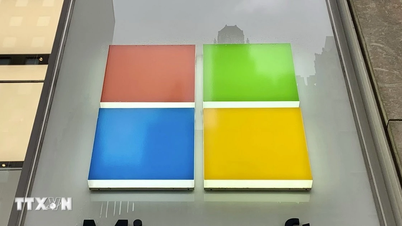










![[INFOGRAPHIC] China announces crew of Shenzhou 21 mission](https://vphoto.vietnam.vn/thumb/402x226/vietnam/resource/IMAGE/2025/11/05/1762297490558_thumb-than-chau-21-jpg.webp)
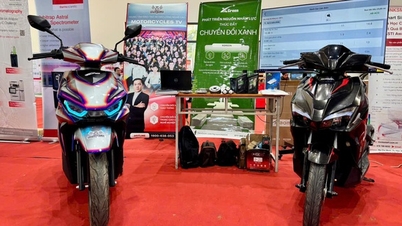











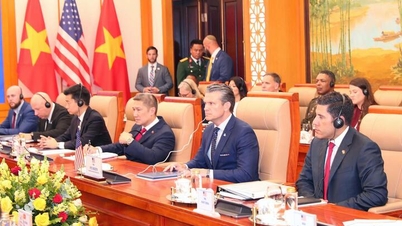




































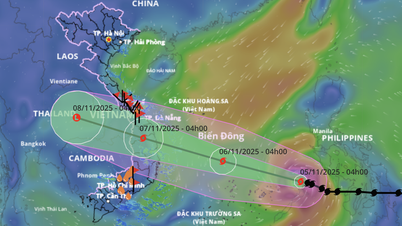
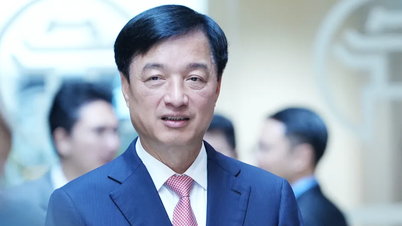


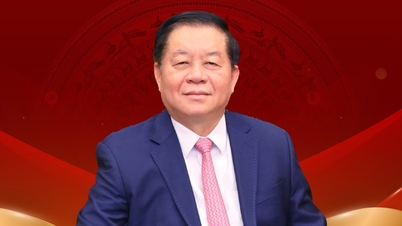
































Comment (0)